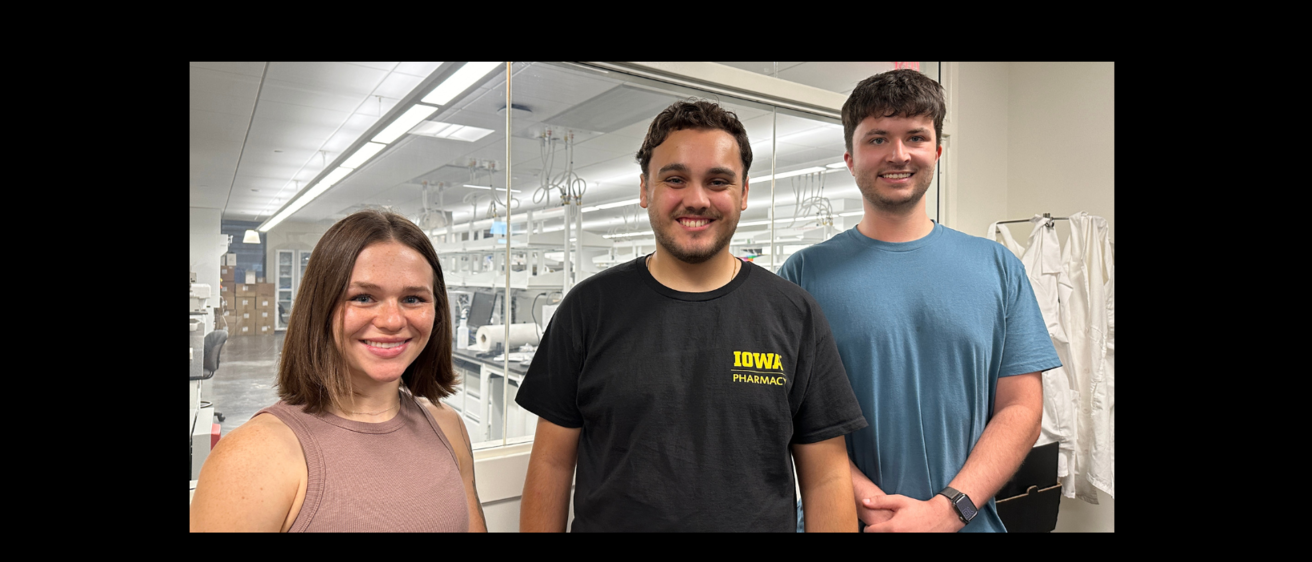Three UI College of Pharmacy graduate students entering their second year of study have been appointed to National Institutes of Health (NIH)-funded institutional predoctoral T32 research training programs housed at the University of Iowa. The students are part of the College’s Pharmaceutical Sciences and Experimental Therapeutics Department (PSET).
Mary Schad, of PSET’s Drug Discovery and Experimental Therapeutics (DDET) program, and Joseph Correa, who is studying in the Pharmaceutics program, are fellows in the Biotechnology training program. Schad is member of Professor Robert Kerns research group, while Correa conducts research with Chin Professor in Pharmaceutics Nicole Brogden.
Nathan Gentilman, also in DDET, is a fellow with the Pharmacological Sciences predoctoral training program. Dave Roman, Gentilman’s advisor and College of Pharmacy associate dean for Research and Graduate Education & professor, is that program’s co-director. Pornpoj (Jay) Phruttiwanichakun, who is pursuing a pharmaceutics PhD under Bighley Chair and Professor Aliasger Salem, renewed his Biotechnology T32 fellowship for a second year.
Besides the College's current appointees, three students with other graduate programs doing their dissertation work with College of Pharmacy advisors were also trainees in the pharmacological science T32 program. They are Valeria Cota (Human Toxicology-Brogden), Rachel M. Crawford (Human Toxicology-Professor Ethan Anderson), and Emma Simpson-Wade (Molecular Medicine-Assistant Professor Marie Gaine).
The purpose of the NIH T32 predoctoral training programs is to enable institutions to recruit individuals it chooses for predoctoral research training in specified shortage areas. The program’s goal is to prepare trainees for careers that have a significant impact on the nation’s health-related research needs.
Participants are selected at the end of their first year of graduate school. Fellowship support is available for up to two years, during which trainees focus on their thesis research and completing educational and experiential requirements unique to each training program.
“We are very fortunate to have our PSET graduate students awarded prestigious fellowships via the NIH T32 Pharmacological Sciences and Biotechnology programs, which represent outstanding training opportunities in the biomedical sciences,” said Jonathan Doorn, Lach chair and professor. “The application process for these fellowships is extremely competitive given participation of graduate programs across the University of Iowa campus, spanning numerous departments and colleges. Our PSET students are top notch, and the fact that they receive such accolades serves as evidence.”
